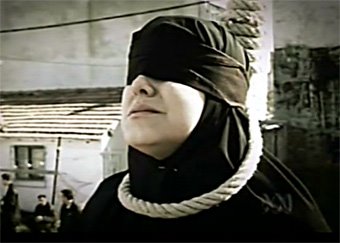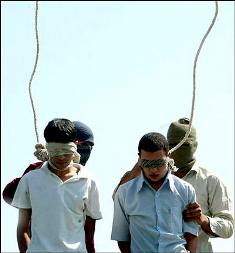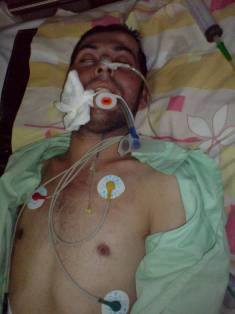Iranian Minorities’ Human Rights Organisation (IMHRO)
Ref.IMHRO.79
23.02.2011
IMHRO informed that many Ahwaz Aabs are arrested by Iranian security service in city of Khalafia ( ramshir or Khlaf Abad) and Abadan in al- Ahwaz region in south west of Iran.
A woman Mr. Zaineb Mansori along with 2 other men with names Mr. Jabber Tamimi and Mr. Habib kanani arrested in city of Abadan. They all have been member of Al -Horyeh (freedom) group in Al- Ahwaz region and published local leaflets regard of inviting people for demonstration. IMHRO told they moved to unknown location after arrest.
In same time 5 men with names Mr Hashem Shaabani ( Omori ), - Mr Shahid Shaabani ( Omori) Mr Abdul Amir Omori, Mr Mohammad Ali Omori, Mr Aqil Aqili 29 years old and Rahman Asakereh 33 years old, all arrested in city of Khalafia ( Ramshir or Khlaf Abad).
IMHRO is appealing to international community, to put pressure on Iranian government for release of all Ahwazi political prisoners and allowing political parties to freely express their view.
IMHRO Thanks NGO’s and international organisations for monitoring situation of Ahwazi Arabs and other ethnic minorities in Iran in recent years, But IMHRO feels international community needs to do more regard of Ahwazi Arabs in Iran.
IMHRO appealing to international community to stand up for Human Rights of Ahwazi Arabs, who are banned to speak in their mother tongue (Arabic language) and many of their activist are in prisons.
“International community need to do more for religious, ethnic and social minorities in Iran, especially for Ahwazi Arabs as world media hardly mention their stories comparing with other minority groups in Iran” Reza Washahi researcher told IMHRO.
Background
Ahwazi Arabs population is at least 5 million people and they live in south west of Iran. Their land was occupied by Reza Shah in 1925 and later united with Adolf Hitler and allied forces have to occupy Iran in August 25 1941 to remove him from power. Since 1925 Ahwaz Arabs experienced social, economic and political suppression. Ahwaz in second largest gas reserves and has 20% of world proven oils. As result of discrimination and apartheid system in Ahwaz, unemployment is high and this year reached 40%. Malnutrition among many families has been reported. Ahwaz Arabs land and water are polluted by toxic materials and new Darkhovin nuclear facility poses a great danger to millions of people in Falahieh and surrounding.

































































